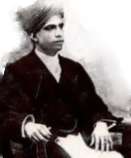Amrit Keshav Nayak

Amrit Keshav Nayak (1877 – 18 July 1907) was a theatre actor, director of Parsi theatre, lyricist and Gujarati author. He joined theatre at early age and later directed several plays including adaptations of plays of Shakespeare. He wrote plays and novels also.
Life
Nayak was born in Ahmedabad in 1877 to Nayak family. He lived in Mata ni Pol in Kalupur area of the city. He studied only four grades and two grades in Urdu. Nayak moved to Bombay with his father. In 1888, he joined Alfred Natak Mandali at the age of eleven. After his successful role in Gamre ki Gori (Nymph of Village) and Bimare Bulbul, he went to Lucknow to study theatre under Bindadin Maharaj. He learned music there. After his return, he directed Alladdin and played Laila himself whose success elevated him to post of Assistant Manager at the age of 15. He pioneered the adaptation of plays of Shakespeare in Urdu. He adapted Khun-e-Nahak (Hamlet) and Bazum-e-Fani (Romeo and Juliet) for Alfred company. He directed several plays of Urdu dramatist Agha Hashar Kashmiri including his adaptation of Shakespeare's play, Murid-e-Shaque (A Winter's Tale, 1899) and Shahid-e-Naaz (Measure for Measure) . Following differences with, Cowasji Palanji Khatao of Alfred Company, he left it formed his own company. He produced Shakespeare's Cymbeline in Urdu as Meetha Zahar. He was married to Parvati, an illiterate girl from Kadi at an early age. He had a brief relationship with singer and dancer Gauhar Jaan whome he met around 1904–05 in Bombay and together they wrote and composed several hit songs like Pardesi Saiyyan Nena Lagake Dukh De Gaye, Sar Par Gagar Dhar Kar, Dilenadaan Ko Hum Samjhate Jayenge, Aan Baan Jiya Mein Laagi. He was working on his new production Zahari Saanp before he died on 18 July 1907 in Bombay following heart attack.[1][2][3][4]
Literary works
Nayak wrote a column for Amrita Bazar Patrika and Gujarati periodicals. He wrote a play, Bharat Durdasha Natak (1909) about prevalent condition of India. His novel M.A. Banake Kyon Meri Mitti Kharab Ki? (Why did you educate me and destroyed my honour?) was about shortcomings of education system. His another novel, Mariyam was about Muslim life. His incomplete and unpublished works are Sanskrit ane Farsi Bhasha no Paraspar Sambandh (Relationship of Sanskrit and Persian languages) and Nadirshah. Apart from lyrics for songs for his plays, he wrote Gazals in Gujarati too.[1][2][3][5][6]
References
- 1 2 Vikram Sampath. My Name is Gauhar Jaan. Rupa Publications. pp. 120–122. ISBN 978-81-291-2233-9.
- 1 2 "Amrit Nayak" (in Gujarati). Gujarati Sahitya Parishad. Retrieved 17 October 2014.
- 1 2 Vashi, Ashish (31 May 2010). "Bombays nightingale of 1900s had lover in city pol!". The Times of India. Archived from the original on 17 October 2014. Retrieved 17 October 2014.
- ↑ Gautam, Savitha (13 May 2010). "Recording Gauhar Jaan - My Name is Gauhar Jaan - Vikram Sampath - Book Review". The Hindu. Retrieved 17 October 2014.
- ↑ Kathryn Hansen (1 December 2013). Stages of Life: Indian Theatre Autobiographies. Anthem Press. p. 34. ISBN 978-1-78308-068-7.
- ↑ Amaresh Datta; various (1 January 2006). The Encyclopaedia Of Indian Literature (Volume Two) (Devraj To Jyoti). Sahitya Akademi. p. 1389. ISBN 978-81-260-1194-0.